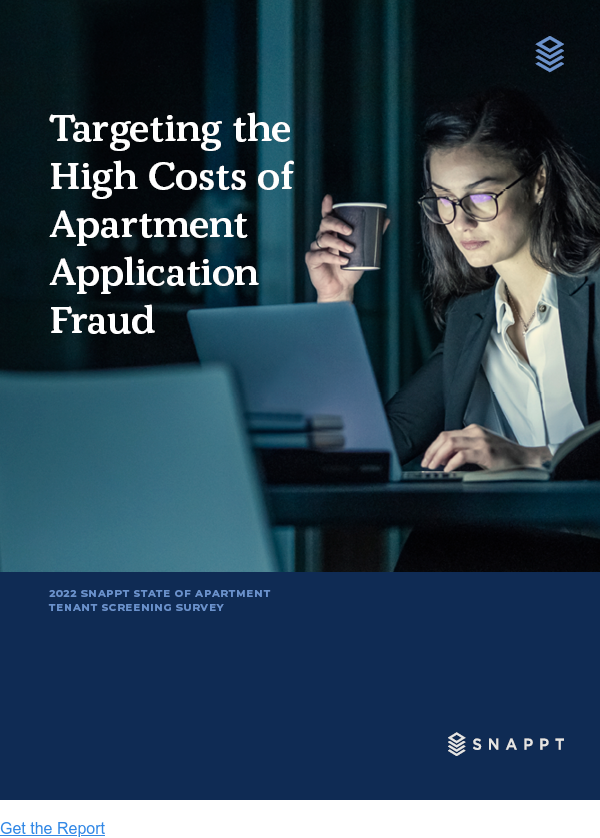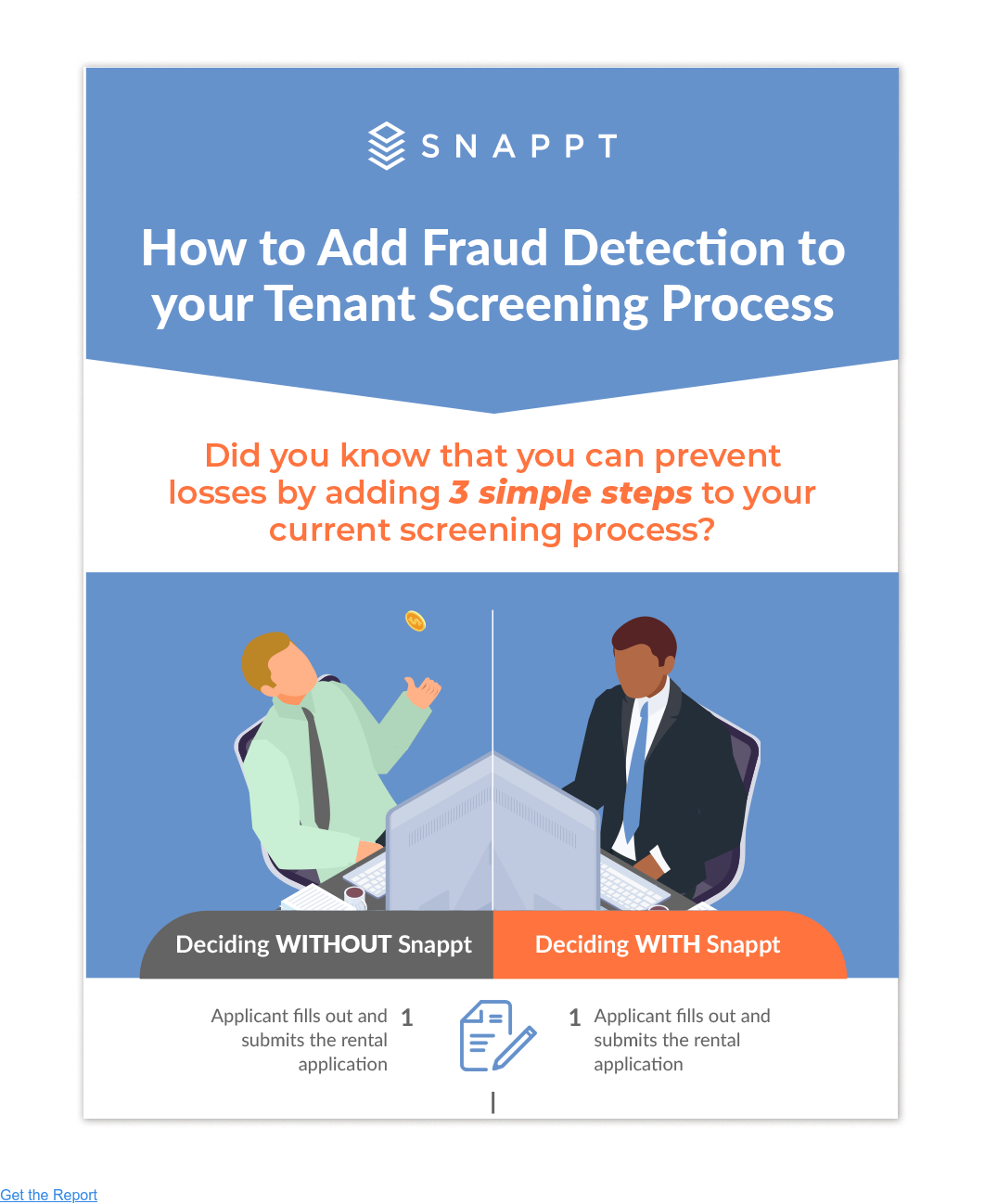Recap
In the previous blog post in this series, we outlined why tenant fraud rises during recessions and established the risks that property management companies might face if unprepared for what COVID-19 brings.
In this post, we’ll examine why your current fraud detection techniques may be insufficient and recommend new tools you can use to combat fraud in the modern era.
Why Current Fraud Detection Techniques Are Insufficient
Two of the most common fraud detection techniques that property managers utilize are in-person screening and reference verification. Both methods are uniquely at risk in a quarantine environment.
In-Person Screening
With social distancing at the forefront of the American lifestyle, many organizations are shutting down their in-person leasing operations. Beyond simply restricting the ability to vet an applicant in person, this transitions applications to a digital format, which is 40% more likely to contain fraud. Organizations can no longer simply rely on the in-person screening process to detect fraud.
Reference Verification
Many applicants provide a phone number for their current employers. However, as this number is self-supplied, property managers have no way of knowing whether the “employer” is simply a friend of the applicant who is in on the fraud. That’s why it is common practice for property managers to locate and call the office line directly to ask about the applicant. Unfortunately, however, with many employers moving to the work-from-home model, calling the office is often no longer an option.
So, if in-person screening and reference verification techniques are out, what can property managers do to detect fraud?
Recommended Fraud Detection Techniques for the New Era
Visual Detection
Most major sources for bank statements and pay stubs have the same formatting for all documents from that source. Said differently, one Bank of America statement should look like another Bank of America statement. Thus, a property manager can check the formatting and file quality of a submitted statement to gauge its authenticity. The key questions that a reviewer should evaluate are:
- Does the file look scanned, or like the original digital document?
- Are the transactional details aligned or shifting between documents?
- Does each document of the same type match the expected formatting?
Check the Math
The next step that the property manager could take is to check the math of the submitted statements. If an applicant gets direct deposits from their workplace into their bank, the amount they earn should be reflected in equal measures on both statements. Further, the reviewer can ensure that the ending balance of one month matches the beginning balance of the next month. Similarly, the reviewer can run the math on the applicant’s pay stubs to ensure that the year-to-date earnings reflect the proper income from statement to statement.
Performing Due Diligence
Savvy fraudsters can defeat both visual and math checks, though. A committed property manager should perform due diligence on the applicant by researching the company and the applicant via sources such as LinkedIn, Open Corporates, and SBA.gov. A thorough investigation can find a thin working history or a company that exists on paper only, indicating a fraudulent applicant.
While effective, these checks are time-consuming and not core to a property manager’s job. Luckily, there’s a targeted solution.
The Data-Driven Fraud Detection Solution
The data-driven fraud detection solution offers a new approach to fraud detection. Instead of spending hours vetting an application, a property manager spends minutes uploading digital documentation for analysis as well as a data-driven review using algorithms specifically tuned to catch document manipulation. Within 24 hours, the property manager receives a report certifying whether the documentation is fraudulent or authentic, saving time and reducing hassle.
Taking Crucial Action, Today
With a recession looming and the rental landscape altered by COVID-19, the time to take action to protect your rental revenue is now. According to Spirited’s calculations, a 10,000-unit portfolio should expect $1.5 million in lost revenue due to preventable fraudulent applications—and it is projected to get worse as we enter the coming recession. Really, the question facing property managers is not “Should we implement fraud detection?”—it’s “Can we afford not to implement fraud detection?”











